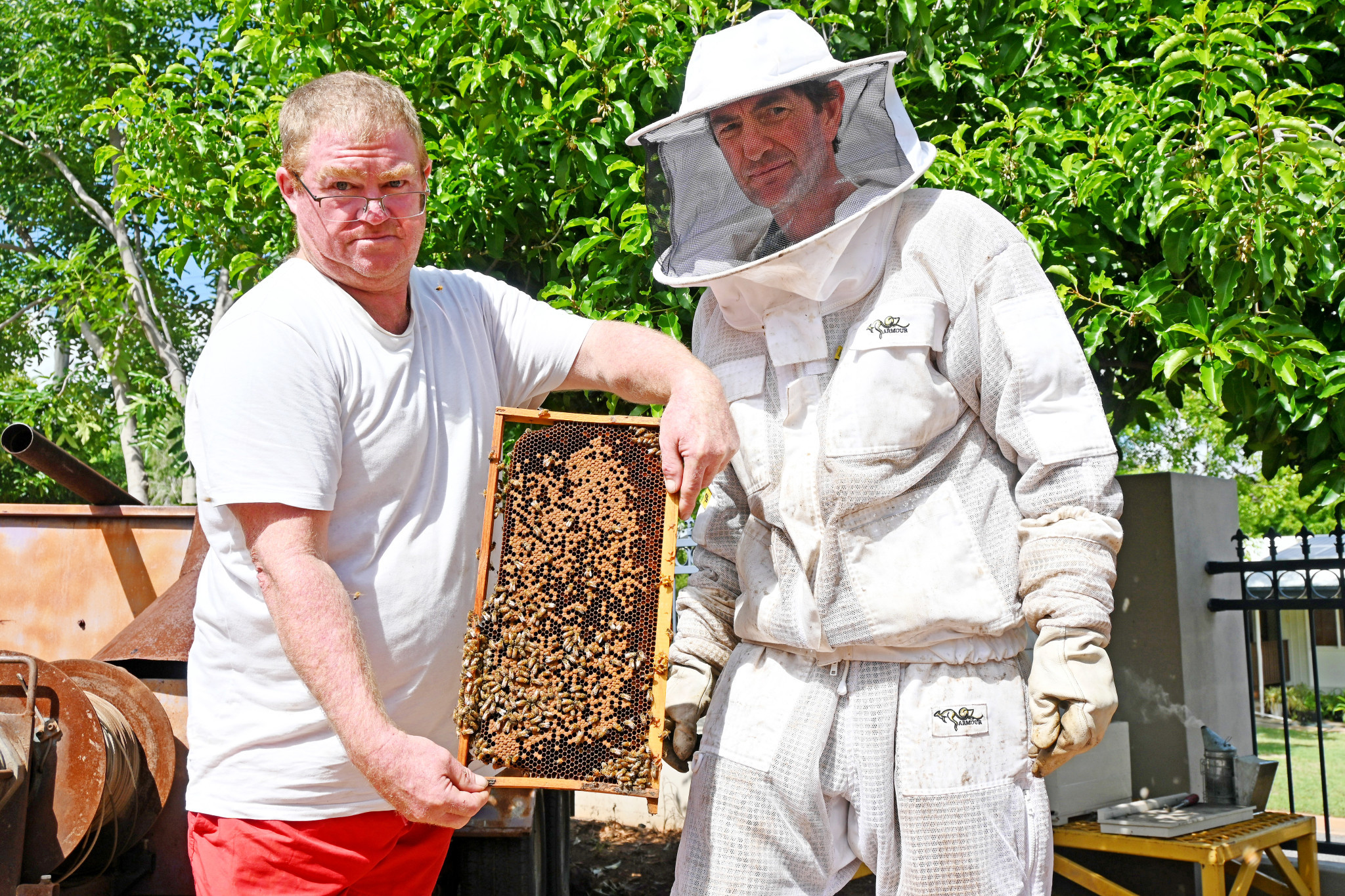General News
14 May, 2025
Bee virus a concern for Mount Isa apiarists
There is concern about the impact on local hives if the varroa mite finds its way to the North West.

Scott Sheard, better known as Bluey Beeman, has delivered an impassioned plea to Mount Isa’s councillors on behalf of the beekeepers and vegetable growers in the city.
Addressing the council, Bluey asked councillors what support they might be able to offer to help prevent the destructive infestations of varroa mite found in southern beehives from reaching the North West.
“What is the criteria to try to get some help? Varroa mite is pretty critical – there is no cure, only treatment,” he said in the Mount Isa City Council chambers.
“No bees, no pollination, no food and that includes beer, which is barley hops.
“We are in a special place in Mount Isa cause we don’t have it yet. I’m hoping we might be able to put a blockage in.”
Mount Isa mayor Peta MacRae said she was willing to explore any available options and arranged for Bluey to meet with council staff to discuss what assistance might be possible.
The varroa mite parasite was detected in hives at the Port of Newcastle in mid-2022 and, in March this year, was discovered for the first time in southern Queensland.
Exotic to Australia, beekeepers fear the mites will spread from bee to bee and be transported in hives as they are moved around to pollinate crops.
Mite infestations cause a reduction in the honey bee population, replacement of queen bees and eventual colony breakdown and death.
The Mount Isa Men’s Shed is currently exploring available funding to purchase equipment that can be shared among local beekeepers if the virus does spread to the North West.
Bluey, who has promoted beekeeping in Mount Isa for many years, said the mite would devastate the pollination of gardens across homes and small commercial operations.
“This issue should be a concern for anyone who enjoys their gardening,” he said.
“People say ‘I had a bumper crop this year’ in their veggie garden, well the truth is someone probably moved a beehive near you. The less pollinators we are going to have, the less fruit and veggies that people are going to be able to grow.”
Mount Isa Men’s Shed president and fellow beekeeper Richard Pitt said he expected most amateur beekeepers would leave the industry if the mite arrived in North West Queensland.
“There’s a fair bit of work involved in keeping these hives and there’ll have to be a lot more effort in treatment if the mite arrives – so they may just walk away and do something else,” he said.
“We could fight this if we work together and I’m working with the men’s shed to see if we buy some equipment we can treat the brood to kill the mite.”
Local beekeepers are currently exploring others options to improve information sharing, including the possibility of establishing a local informal network.